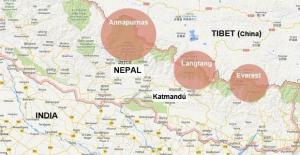Main gods of India and their meaning

Image: Memories of the World
Throughout history, all societies have had a mythology, a set of myths based on traditions and legends. with which an attempt has been made to explain everything that happened in different cultures, such as the creation of people. Among the dozens of mythologies that exist, one of the most recognized is the Hindu, being a very complex mythology but at the same time unique. One of the most important parts of any mythology is its gods, and that is why in this lesson from a PROFESSOR we are going to talk about the gods. main gods of India and their meaning.
To begin with this lesson on the main gods of India and their meaning, we must first define the Hindu mythology to understand how it differs from Hinduism and how the gods appear in the legends that make up.
Hindu mythology is one of the broadest and most complete throughout history, with a large number of writings that speak of great legends and incredible gods. Some of these texts are the Vedas and the Puranas, works written in Sanskrit where they talk about the gods among many other things.
Hindu mythology has a huge variety of gods, beings that generally have an appearance similar to that of humans, but with a series of abilities and powers out of the ordinary, which allow them to do unique things. These gods appear in the legends performing great feats, many of them with very important messages for the readers.
One of the most important concepts in Indian mythology is that of Trimurti, being a Sanskrit term that is used to talk about the three most relevant gods and important in Indian mythology. These three gods represent the three phases of the universe, creation, conservation and destruction. Considered as the representatives of the three phases of which all lives consist. The three gods are as follows:
Brahma
For Indian mythology, Brahma is the creator god of the universe so for many he is considered the supreme god, being a god represented by a man with four heads and four arms. These 4 arms hold different elements, these being the Vedas, a Mala and the Mudras.
There are numerous different myths about the origin of this god, some speaking of the birth of him to starting from a cosmic egg, and others from the birth of it arising from a lotus flower in the navel of the god Visnu.
Visnu
Vishnu is the Indian god who represents the preservation of the universe, being a deity represented in blue and with 4 arms, holding in his hands a lotus flower, a mace, a shell and a disk.
His function is to preserve the world, so when it is in danger he takes the appearance of a avatar in order to intervene on Earth, some of his avatars are Branch Y Krishna.
Shiva
Shiva is the god who according to Indian mythology will destroy the universe, he being the one who destroys so that he can regenerate in a new cosmos. Shiva is also the god of nature, controlling the elements, and being able to make one season end and another begin.
In addition to all this, Shiva represents many other things, such as the protection of animals, knowledge, or beasts. Like Vishnu, Shiva also uses a series of avatars to perform his task on earth, examples of this are Durvasa or Indra.

Image: Fernando Malkún
Beyond the three gods that make up the Trimurti, there are a large number of gods that make up Indian mythology. Therefore, we must talk about some of the main members of the Indian pantheon that exist, some of which are the following:
- Agni: This god fulfills the function of messenger between the gods, in addition to being the God of fire.
- Ganesha: One of the most famous gods, she has the body of a man and the head of an elephant, and represents the arts and sciences.
- Kali: One of Shiva's consorts is the God of Death.
- Hanuman: The monkey god, considered by some sources as an aspect of Shiva.
- Bargain: Goddess of the river Ganges.
- Parvati: Goddess of food and wife of Shiva.
- Indra: Chief of the demigods and king of the devas.
- Varuna: Goddess of seas and oceans.

Image: Hindu Universe



